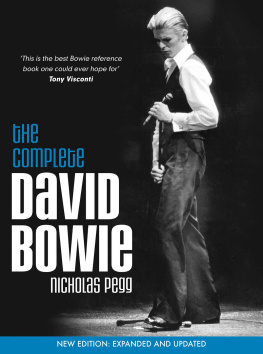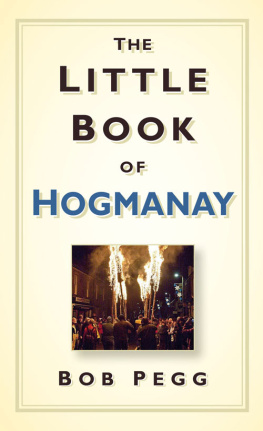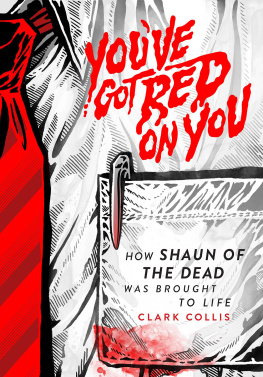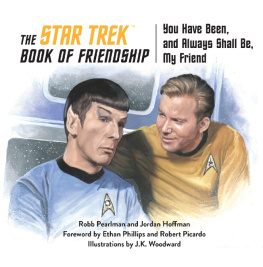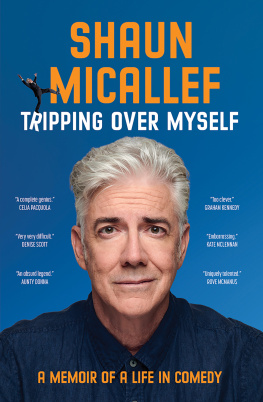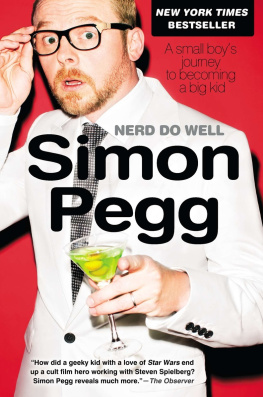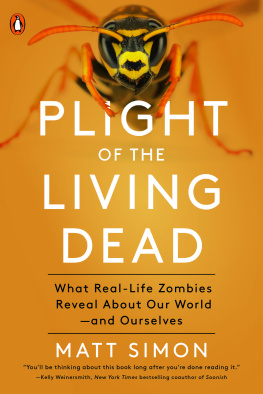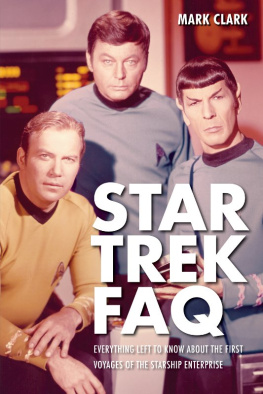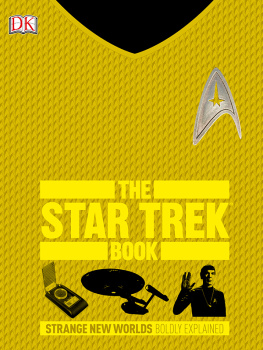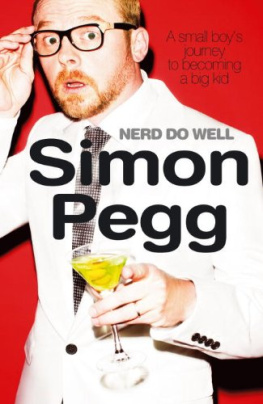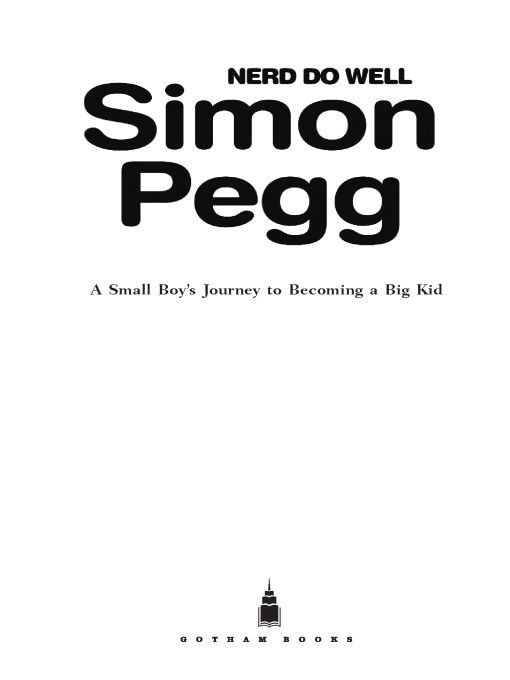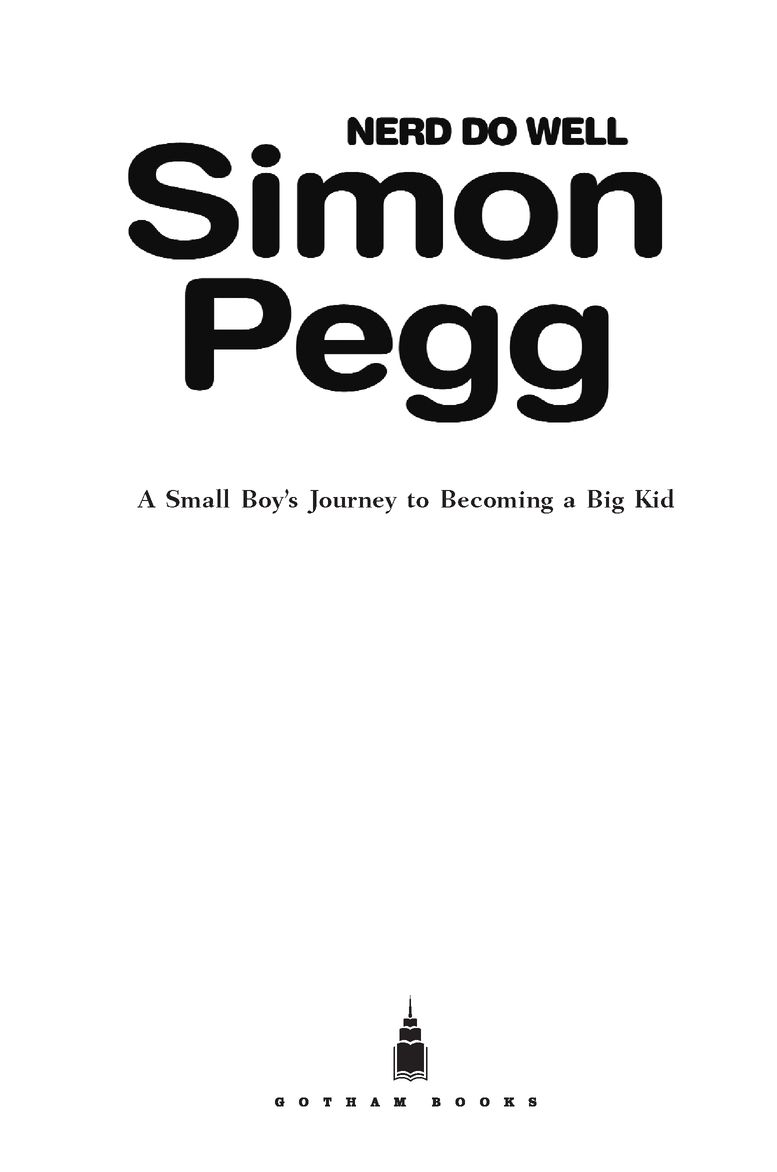Table of Contents
Acknowledgements
Although these acknowledgements relate specifically to the process of writing the book, there are a few more general thank yous I would like to express. Firstly, my mum, Gill, and my dad, John, for their endless encouragement and support over the years. It has been the foundation of everything I have achieved and a debt I can never repay. My wonderful wife, Maureen, for her understanding and willingness to be literally left holding the baby during the more intensive periods of writing this book. As always, I look forward to her thoughts the most. I should also give tribute to my sister, Katy, whose nerd credentials have often outstripped my own. Thanks for putting me on to all those great TV shows and being Robin to my Batman (I am of course talking about Carrie Kelly, the female Robin from The Dark Knight Returns). My brothers, Michael and Steven, for allowing me to make films with their toys and break them in the process. It was more than worth it for Bogorof the Bad, Parts 1 and 2 (my unseen first features). My agent, Dawn Sedgwick, for looking after me with such tireless devotion and having a confidence in me that even I didnt have. Im not always the easiest person to motivate but her persistence in bringing out the best in me has never faltered and for that I am eternally grateful. Nods of thanks must also go to Alex Pudney and Nicola Mason Shakespeare who work by Dawns side, chasing me down with pressing matters as the FBI chase down elusive terrorists. My editor, Ben Dunn, at Century who has demonstrated a seemingly indestructible patience in dealing with me. His enthusiasm, understanding and belief in my capacity to finish and indeed start this venture have been remarkable in light of my infuriating indecision and tendency to procrastinate. Elsewhere on the third floor of the Random House building on the banks of the River Thames, Id like to thank Briony Nelder for looking after me so completely during the writing process and being someone with whom I could freely discuss the complexities of the final season of Lost. Katie Duce for assisting Ben in helping shape my somewhat shapeless train of thought into, of all things, an actual book. And Jack Fogg, not only for sounding like the alter ego of a Victorian superhero but for being part of the team that made me feel so welcome and, dare I say it, valued at Century. Thanks also go to Tony Kelly, the marvellously intuitive and gifted photographer, who I roped in for the cover shoot and who always makes things fun, and the great Simon Bisley for his spot-on rendition of me and Canterbury. And lastly, although their job has been to feature in this book rather than contribute to it, I would like to thank my dearest friends and closest collaborators for the material and, above all, the love. Michael Smiley, Edgar Wright, Jessica Hynes, Nira Park and of course, my inspiration and best friend, Nicholas John Frost.
Foreword
Hello, North America. Welcome to a very special edition of Nerd Do Well and to a foreword I am writing just for you. This isnt in the original British version of the book, which is a good thing because the whole Hello, North America salute would be lost on them, or else they might assume I was being ironic and making a comment about how North American culture has had such an influence over our own; we have become a sort of miniature facsimile of it, aping its cultural ephemera like an aspirational younger sibling. Ironic in itself considering Britain is culturally ancient and collectively cynical whilst contemporary North American society is relatively young and brash like a teenager: full of opinions, optimism and self-confidence.
A confused metaphor, I know, but it explains our respective attitudes towards sarcasm and irony. I often find myself irked by my countrymen when they snootily insist that North Americans dont do irony. This simply isnt true; there is a rich vein of dry and ironic humo(u)r which permeates the North American cultural output. The difference is simply a social one and I believe it goes back to the relative ages of our respective nations.
As a mishmash of ancient European tribes and migrated global villagers, the British are possessed of a certain suspicion when it comes to emotion. This is most likely a result of our being continually annexed, conquered and forced to defend our sovereignty against incursion. Im not sure why we suffer this ignominythe weathers very erratic and the service is terrible.
Perhaps its the historical product of our rise to imperialist superpower and subsequent redesignation to small island nation with an emperor-sized ego. Our trust has been smashed too many times by smiling visitors whose intentions have been less than honorable. We dont buy sentimentality anymore, we simply dont trust it. Consequently, we are extremely dry as a nation and treat our emotions like chronic acne: something to be covered up, ignored or made fun of.
The US on the other hand has for the most part won its dustups or else saved the day. It certainly isnt accustomed to defeat. As a result, it isnt particularly prone to flinching. This also explains why when things dont go its way America demonstrates such a huge amount of public soul-searching, as events are cathartically replayed through art and discussion (I talk about this later in relation to Star Wars. Yes, thats right, Star Wars). Even the weight of emotional baggage is not enough to dampen the American spirit, and the national psyche remains as proud of its emotional demonstrations as ever, seemingly not feeling the need to mask them with wry comments and selfdeprecation like its smaller, older brother.
It explains why when irony is used in North America, particularly in the US, it is often qualified by the phrase just kiddinga verbal emoticon to clarify intent and ensure no offence is taken. We British are inclined not to be so selfpossessed and instead rely on the other person to perceive the subtext, almost daring them to not get the joke, to feel slighted and foolish for having no apparent sense of humo(u)r. This breeds a very dry society where everyone is simultaneously emotionally confrontational and defensive. Sound familiar?
Why am I waxing philosophical about the emotional complexities of our respective landmasses? Well, fact is, my American publisher requested I write a foreword for this edition of Nerd Do Well and stipulated that it should be about fifteen hundred words long and, to be perfectly honest, I really didnt know what to write. Im guessing they want me to preface the book with a disclaimer-type introduction to paper the cracks left by any details lost in translation. There will be a few specific, often parochial, references that I would expect any Brit to decipher with ease that might crease the brow of our special relations but thats not a terrible thing.
The world is a much smaller place since the dawn of the Internet and any queries you might have can be answered in milliseconds using a search engine. Maybe its that same sense of overcautiousness that inspired PBSs Masterpiece Theatre to bookend its imported British programming with an elderly gentleman sitting beside a fireplace, installed there to explain why Mr. Darcy is so mercilessly rude to Elizabeth Bennett or why those folks in puffy shirts talk funny. Thats what this foreword is: a patronizing old fireside fart.
You get it though, dont you? I really dont have to explain small linguistic discrepancies like the inclusion of letter u to colour and humour, or s where you yourselves might employ a zed (sorry, zee). These are just older ways of spelling words not yet shortened in favo(u)r of economy. Or why, when I talk about my pants, Im actually talking about my underwear and not my trousers, which is what we crazy Brits call pants. We know all this, its old news.


